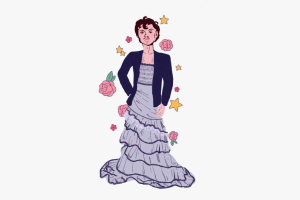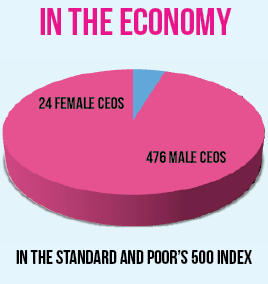In-depth: Expanding the definition
The term ‘sex discrimination’ in Missouri was updated in 2019.
Harold Lampley has helped change what the term “sex discrimination” means in Missouri. In 2019, the Missouri Supreme Court ruled that employers can no longer discriminate against employees who do not conform to assigned gender stereotypes. This case was brought to the court by Lampley, a gay man who claimed his employer discriminated against him because he didn’t demonstrate typical male behavior.
According to the Missouri Supreme Court’s website, Lampley first filed a complaint about his treatment with his employer, saying he was harassed at work. Rene Frost, Lampley’s friend and co-worker, was also discriminated against due to her relationship with him. After filing her complaint, Frost’s desk was moved away from Lampley and her other co-workers, and she was told she could no longer eat lunch with Lampley.
Lampley is not the only person to face discrimination based on sex stereotypes. Sarah Martin, sophomore, said she had a similar experience.
“I used to be in [a] law class at my old school, and there were a lot of guys in there,” Martin said. “I constantly felt [like] when I would say something, I would be overlooked. I still spoke [out] because I like to challenge them, but I know girls who don’t want to speak because they don’t feel it is their place because they’re a woman.”

Sarah Esslinger, KHS counselor, said many people feel apprehensive around those who don’t conform to their gender. This discomfort can lead to them criticizing that person.
“Anything that is outside what society deems as normal, anyone who is challenging the status quo, even in a respectful way that isn’t harming anyone else, [is still exhibiting] the different and the unknown, [which] can really upset people,” Esslinger said. “Society has pretty firm gender roles of what is normal and expected of people based on their gender. When people don’t adhere to that, [it] might feel foreign to some people and can lead to discrimination, which can [prompt] a lot of other bigger and deeper issues too.”
In the circuit court, Lampley’s allegation was dismissed because it was ruled under discrimination based on sexual orientation, which, according to St. Louis Public Radio, is not yet prohibited in Missouri. However, a loophole was found in the Missouri Human Rights Act where the Act failed to recognize discrimination based on sex stereotypes. Once this was found, Lampley’s case was appealed at the Missouri Supreme Court and ruled in his favor.
After Martin’s experience, participating in class discussions made her feel undermined because of her gender.
“Women and men are sometimes held back [from] doing the things they want due to certain stereotypes,” Martin said. “Gender stereotypes hold a lot of people back, and [they are] very toxic.”
According to St. Louis Public Radio, the Missouri Supreme Court’s ruling in Lampley’s favor was a “major victory for LGBTQ advocates,” because members of that community are most prone to sex stereotype discrimination. Bella Battista, senior and LGBTQ community member, agrees that these stereotypes target her and others like her.
“Our society is so heteronormative that we try to find the ‘man’ and ‘woman’ in relationships based on the way they dress and act,” Battista said. “As a person struggling with my gender identity, gender stereotypes don’t help because they further confuse my decision about what gender I fit into and makes me feel self conscious about not fitting in with anyone.”
According to USA Today, repeated discrimination can lead to a higher chance of depression in girls and engagement in physical violence in boys. Battista agrees gender stereotypes leave a negative impact.
“[I think people should create a world where] you can be who you are and not have some stigma [around] it,” Battista said. “People should be able to be themselves and not have a label associated with them.”
Your donation will support the student journalists of Kirkwood High School. Your contribution will allow us to purchase equipment and cover our annual website hosting costs.

She/Her
Hobbies and Interests: hanging out with friends and family, walking my dog, reading, baking
Favorite song: Dive by Kid Cudi
Favorite...

She/Her
Hobbies and Interests: photography, piano, hiking, reading
Favorite song: New Year's Day by Taylor Swift
Favorite Quote: "To define...















